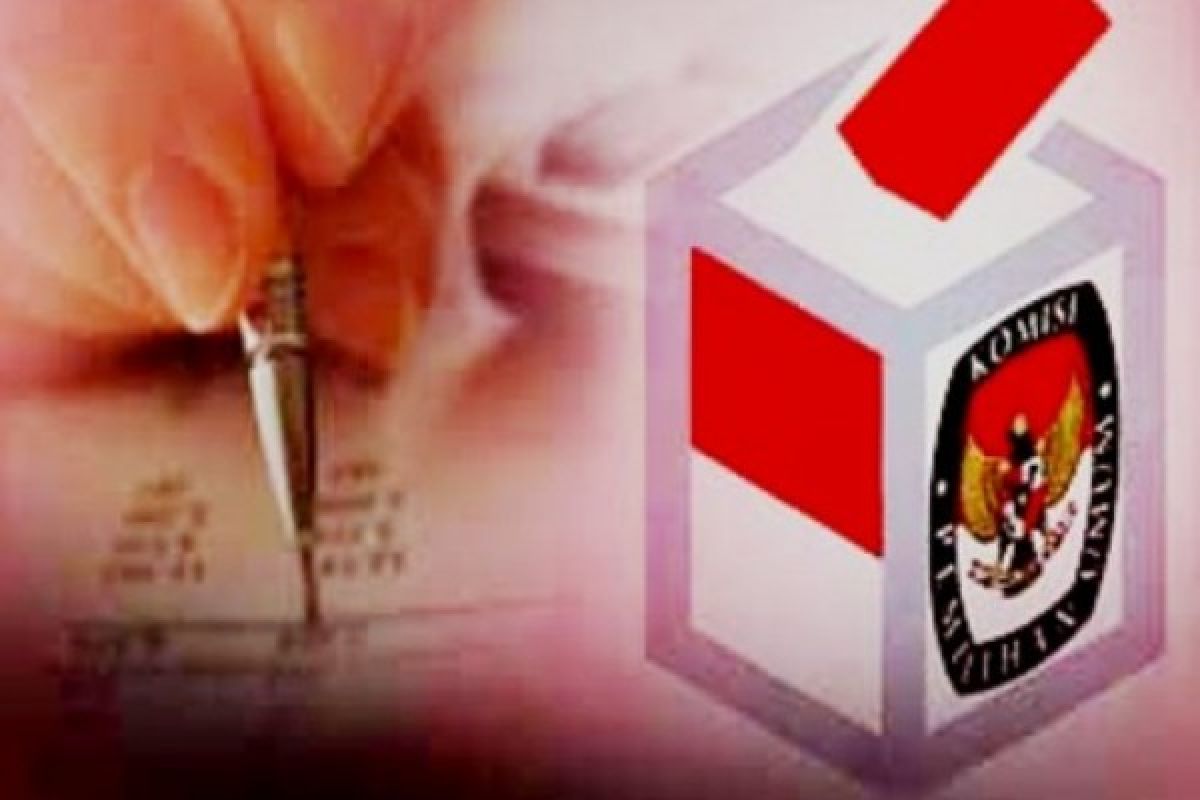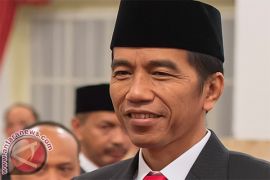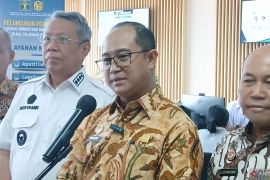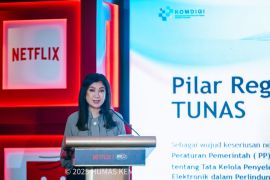"This year, we are entering the year of politics, and we need to be aware of this, so that we can all maintain unity and fraternity in order to ensure smooth implementation of this celebration of democracy," President Jokowi said.Jakarta (ANTARA News) - Indonesia has successfully organized smooth, peaceful, fair, and democratic simultaneous regional head elections (pilkada) twice, so the nation is optimistic of repeating this feat in its upcoming pilkada.
The third pilkada will be organized simultaneously in 171 regions, comprising 17 provinces, 39 municipalities, and 115 districts across the country on June 27, 2018.
The number of eligible voters for the pilkada 2018 reaches 158 million, or some 80 percent of the total number of eligible voters for the presidential and legislative elections in 2019, which is some 197 million.
Various parties, including President Joko Widodo (Jokowi) and several legislators, have expressed optimism that the next local elections would emulate the previous ones.
During a visit to Kupang, East Nusa Tenggara Province, on June 8, 2018, Jokowi urged all elements of society to maintain fraternity and national unity, as the country welcomes the regional elections.
"This year, we are entering the year of politics, and we need to be aware of this, so that we can all maintain unity and fraternity in order to ensure smooth implementation of this celebration of democracy," the president stated during a public lecture at the Muhammadiyah University of Kupang.
The head of state expressed belief that no other country apart from Indonesia holds such a massive celebration of democracy.
Hence, the former Jakarta governor highlighted that only by exhibiting political maturity can the society be ensured of safe and smooth elections.
Jokowi urged all candidates to maintain healthy competition and avoid black campaigns and fake news, so that the elections could be held peacefully and smoothly.
"Please compete on grounds of achievements, track records, ideas, programs, or plans. I think they should compete on them. Again, our democracy must reflect our and the nation`s character, which is friendly, polite, and civil," he remarked.
Several indicators to measure the successful implementation of pilkada have been outlined by Home Affairs Minister Tjahjo Kumolo recently.
According to the minister, one of the indicators is the independence of bureaucracy during the elections process.
He also urged that the implementation of the regional elections should not be tarnished by money politics.
Another criteria included is the high turnout, as the number of people coming out to vote in the pilkada 2015 was 70 percent, while that figure during the second pilkada in 2017 was recorded at 74 percent. The minister expressed hope that the turnout this year would be some 80 percent.
The second pilkada was held on February 15, 2017, in 101 regions comprising seven provinces, 76 districts, and 18 municipalities across Indonesia.
To coordinate security during the pilkada process, Chairman of the Election Supervisory Agency (Bawaslu) Abhan had recently met Indonesian Police Chief General Tito Karnavian at the Police Headquarters.
According to Abhan, the Indonesian Police will optimize the Cyber Crime Unit and coordinate with the Bawaslu ranks by monitoring the occurrence of black campaigns through the internet. Both sides have agreed to crack down on offenses in cyber campaigns.
The two sides also discussed the discourse on the formation of a task force for the eradication of money politics and the technical work of the task force.
Meanwhile, Finance Minister Sri Mulyani Indrawati is optimistic that the implementation of pilkada in mid-2018 will contribute to the country`s economic growth.
"Public consumption is relatively positive and runs well despite competition of pilkada," Minister Indrawati remarked recently.
She noted that the pilkada campaign period, which will begin early this year, will contribute to household consumption and non-profit institutions that serve households in the first and second quarters of 2018.
"The pilkada campaign will begin in 171 districts and cities. People will begin spending in the first and second quarters," the minister stated.
Presidential and legislative elections, to be held in April 2019, will also have a positive effect on domestic consumption, starting in the third and fourth quarters of 2018.
"The effect of the next legislative and presidential elections, which will take place at the same time, will be felt in the third and fourth quarters," he remarked.
The General Elections Commission (KPU) had recently completed the rechecking of the results of the corrected administrative verification of 14 political parties, and two of them failed to clear.
Some 12 political parties have passed the administrative verification process and will advance to the process of factual verification, Arief Budiman, the KPU chairman, stated.
Berkarya and Garuda were the two political parties that failed the process. The 12 parties that passed include Perindo, Solidaritas Indonesia, Hanura, Indonesian Democratic Party for Struggle, Nasdem, PAN, PKS, Gerindra, Golkar, PPP, Democratic Party, and PKB.
(T.F001/A/KR-BSR/F001)
Reporter: Fardah Assegaf
Editor: Heru Purwanto
Copyright © ANTARA 2018











